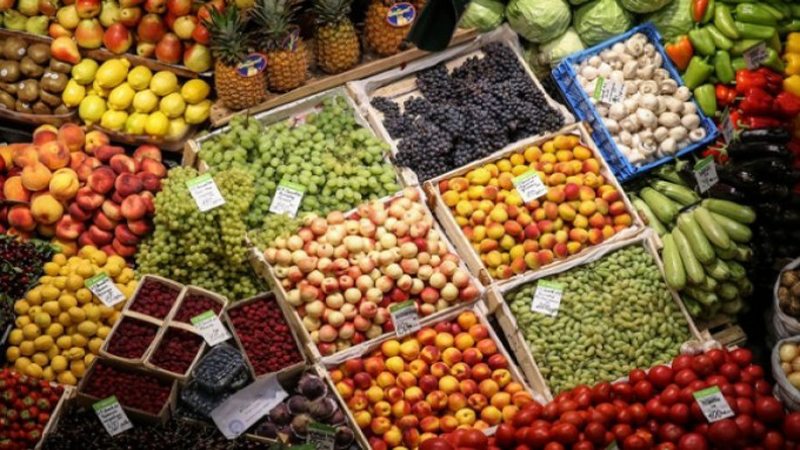
KARACHI: Keeping in view various issues related to the export of kinnow to Russian and Iranian markets during the current year, the export target was revised downward by All Pakistan Fruit & Vegetable Exporters, Importers & Merchant Association (PFVA).
According to PFVA Patron-in-Chief Waheed Ahmed, export of kinnow commenced from December 01 and the export target during the current year has been set to 250,000 tonnes.
The kinnow industry has been experiencing numerous issues in the export of kinnow which had led to consistent decline in exports since 2014-15. 375,000 tonnes of kinnow was exported in 2014-15; however, the target of 300,000 tonnes could not be attained during last year. “The decline in export of kinnow can be attributed to lack of interest on the part of Punjab government, high cost of production, stiff competition and various trade barriers imposed by Iran, Europe and Russia”, Ahmed said.
For the last six years, kinnow could not be exported to Iran due to reluctance in issuance of import permit by Iranian government, disclosed Waheed Ahmed. “Import valuation of Pakistani kinnow is unrealistically assessed higher by $3 per 10kg by the Russian government which makes it almost impossible to compete with Egypt, Morocco and Turkey,” said Waheed.
Demand of Pakistani kinnow in the international markets is on a sharp decline due to its poor appearance and too many seeds. Pakistan had “self-imposed” temporary embargo on export of kinnow to Europe and UK in 2014 and thus averted likely ban on import of kinnow by these countries, Ahmed said.
Attention of government on significance and immediate need for research & development (R&D) is being emphasised by the PFVA for last several years to improve quality of kinnow but despite the fact that more than 90% area of cultivation of crops of kinnow is in Punjab, the Punjab government did not pay attention it deserved, Ahmed said. The production of kinnow during the current season is anticipated to be between 1,900,000 to 2,000,000 tonnes, however, due to production of small size kinnow in abundance, export to Russia has assumed special significance where this size is in great demand, Waheed Ahmed informed.
During the recent fifth inter-ministerial meeting between Pakistan and Russia, it was mutually agreed to give more access of Pakistani Agriculture produces to Russian market and removal of Tariff and NTBs. However, the concerned ministries of Pakistan would also be required to play an instrumental role for implementation of this agreement, Waheed stressed.
Availing this unique opportunity, exporters would be able to get compensation to the huge financial losses they had sustained in the market. PFVA demanded freight subsidy of $2500 per export container, enabling exporters to encounter stiff competition from Egypt, Turkey and Morocco. Pakistani kinnow continues to face stiff challenges from these countries due to extension of freight subsidy by their governments, devaluation of their currencies and low cost of production. Iran like Russia is a big market of Pakistani kinnow, however, due to non-issuance of import permit by the Iranian government, the export of kinnow to this market remains suspended for the last six years, Ahmed lamented.
Issuance of quota in December by the Indonesian government would lead to further enhancement of export of Pakistani kinnow. With export of kinnow from December 1, as of now 800 kinnow containers weighing 20,000 tonnes had been exported to Russia , Dubai , Philippine , Sri-Lanka , Indonesia , Singapore , Saudi Arabia , Canada , Mauritius, Bangladesh, Malaysia , Sri Lanka & UAE, Waheed informed. According to Waheed Ahmed, Pakistani kinnow is also exported to Central Asian states via land routes, however, due to problems being created by the Afghan authorities, the export to these states is likely to be affected and hence it’s imperative that the government must resolve issues by negotiating with Afghan government, Waheed Ahmed demanded.
Attainment of export target of 250,000 tonnes during the current season would largely depend upon favourable weather conditions and political stability in the country while frequent set-ins and protest movements would have bad impact on trade activities and it’s likely continuation during the current export season of kinnow would make it quite difficult to achieve the desired export target, Waheed feared.
Stressing upon the Punjab government, Waheed emphasised the need for immediate action on war footing to improve quality of kinnow; saying that otherwise they would have no option but to shut down kinnow factories providing jobs to millions leading to reduction of $200 million in export revenue while investment of billions would also be washed away, Waheed Ahmed cautioned.
Published in Daily Times, December 5th 2017.